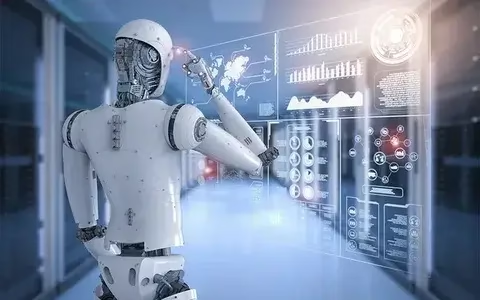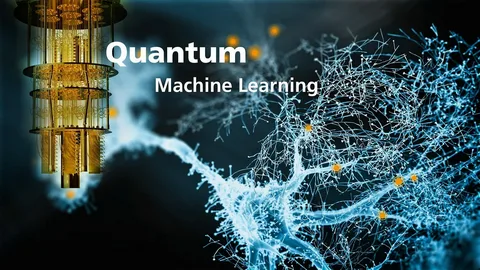Artificial Intelligence (AI) is remodeling industries at a outstanding tempo, and it’s have the impact of AI on software engineering developmentis plain. By automating obligations, enhancing code satisfactory, and enabling innovative applications, AI has ushered in a new era for software program builders and companies alike.

AI-powered tools have end up a cornerstone within the software engineering, connecting seamlessly with the world’s best tools and technologies automation trends. Just like automation in different industries, AI in software program development specializes in making methods faster and more efficient. Tools along with GitHub Copilot or ChatGPT act as smart assistants, taking care of repetitive coding tasks and allowing engineers to pay attention on innovative trouble-fixing. By integrating those present day technology, developers now not handiest shop time but also create smarter, greater dependable packages, making automation a vital part of contemporary software program engineering.
This article explores the impact of AI on software engineering development, diving into its benefits, challenges, demanding situations, and the abilties builders want to thrive on this evolving landscape.
AI in Software Engineering: The New Frontier
AI in software engineering refers to the combination of artificial intelligence technologies into various aspects of software development, from coding to deployment and maintenance. Tools like GitHub Copilot and ChatGPT are prime examples. They act as digital coding assistants, enabling developers to:
- Writing efficient code.
- Debugging errors.
- Automating repetitive tasks.
By embedding AI in the development pipeline, teams can achieve more productivity and attention on innovative solutions.
Benefits of AI in Software Development
The benefits of the impact of AI on software engineering developmentenlarge throughout the whole lifecycle. Key advantages include:
1. Productivity Boost
AI-powered tools automate time-consuming tasks like:
- Generating boilerplate code.
- Testing applications.
- Optimizing performance.
For example, GitHub Copilot uses context-conscious system learning to suggest relevant code snippets in actual time. This drastically reduces time spent on routine responsibilities and permits builders to consciousness on strategic problem-solving.
Anecdote: Imagine a developer stuck on writing a complex algorithm. By using AI-powered IDEs, they can generate an initial draft in seconds, saving hours of manual effort.
2. Enhanced Code Quality
AI tools like DeepCode analyze and improve code by:
AI tools don’t just write code; they help refine it. By analyzing patterns and detecting potential errors, they ensure:
- Highlighting potential errors.
- Suggesting best practices.
- Ensuring consistency across teams.
This is particularly valuable in large projects where maintaining consistent coding standards can be a challenge.
3. Revolutionizing Testing and Debugging
Software testing is critical but often time-consuming. AI-powered systems can:
- Automate test generation.
- Detect bugs with precision.
- Monitor application performance in real-time.
These results are faster delivery cycles and more reliable software.
Pro Tip: Use AI checking out equipment like Selenium or Applitools to streamline your trying out technique.
The Future of Software Engineering with AI
The future of the impact of AI on software engineering developmentpromises new opportunities for innovation and collaboration. AI will continue to:
- Solve complex challenges.
- Automate more aspects of development.
- Create applications that can learn and adapt.
AI and Software Engineering Jobs
AI’s role in software engineering jobs will evolve, creating hybrid roles such as:
- AI Engineers: Experts in both programming and machine learning.
- DevOps Specialists: Using AI to automate deployment pipelines.
- Data Scientists: Bridging software development with data insights.
Pro Tip: Follow discussions on platforms like Reddit under topics like Future of Software Engineering with AI Reddit to learn from peers and professionals.
How to Stay Relevant in the AI Era?
To thrive, developers should:
- Learn AI frameworks like TensorFlow and PyTorch.
- Build projects integrating AI, which include chatbots or predictive analytics equipment.
- Participate in AI bootcamps to gain practical experience.
Stages of AI’s Evolution in Software Engineering
AI’s influence on software engineering can be categorized into three evolutionary stages:
Short-Term: Productivity Boost
In the early stages, tools like ChatGPT and GitHub Copilot focus on:
- Automating simple tasks.
- Assisting with code suggestions.
- Reducing coding errors.
These tools are akin to having a supercharged autocorrect feature for programming.
Medium-Term: New Skills for Developers
As AI evolves, developers need to acquire new skills such as:
- Prompt Engineering, which involves crafting effective queries for AI tools.
- Retrieval-Augmented Generation (RAG), helping AI systems gather and use relevant data.
Engineers will increasingly collaborate with AI systems, integrating their capabilities into complex workflows.
Long-Term: The Era of AI Engineers
By 2027, the demand for AI engineers is expected to surge. These professionals combine expertise in:
- Software development.
- Machine learning.
- Data science.
Their position could be pivotal in growing AI-driven applications that define the subsequent generation of generation.
Challenges of AI in Software Development
While AI brings several advantages, it additionally poses demanding situations:
- Code Maintainability: AI-generated code can from time to time be difficult for human beings to apprehend, growing long-time period maintenance charges.
- Over-Reliance: Engineers risk losing core coding skills if they rely too heavily on AI.
- Bias and Errors: AI systems can perpetuate biases found in their training facts.
Advice: Always evaluation and validate AI-generated code to make certain it aligns with project goals.
The Role of Education in an AI-Driven Era
As AI tools grow to be indispensable to software program development, educational institutions and bootcamps are updating their curricula to consist of:
- Core programming fundamentals.
- Hands-on experience with AI tools like PyTorch and TensorFlow.
- Ethical considerations in AI usage.
Anecdote: At Hack Reactor, instructors teach students how to effectively use GitHub Copilot while understanding its limitations. This twin technique prepares students for the complexities of real-global development.
How Businesses Are Leveraging AI
Businesses are embracing AI to advantage an aggressive aspect. Key applications include:
- Automating DevOps workflows.
- Enhancing customer studies through AI-powered chatbots.
- Building intelligent recommendation systems for e-commerce.
For example, agencies like Netflix and Amazon use AI to customize user stories, boosting engagement and retention.
Future Trends in AI-Driven Development
As AI maintains to evolve, assume tendencies like:
- AI-Powered Integrated Development Environments (IDEs): Tools that combine AI at once into coding environments
- Smarter DevOps: AI systems that optimize deployment pipelines.
- Collaborative AI Systems: AI tools that work seamlessly alongside human developers.
Will AI Replace Software Engineers in the Future?
The huge question: Will AI update software program engineers within the future? The answer is obvious: NO. AI is an enabler, not a replacement. While it automates repetitive tasks, human creativity and decision-making remain necessary.
Analogy: Think of AI as a energy device in a wood worker’s workshop. It hastens tasks but doesn’t update the information needed to craft a masterpiece.
Upskilling for an AI-Driven Future
With 80% of engineers needing to learn new AI skills by 2027, upskilling is no longer optional. Here’s how to stay ahead:
1. Enroll in AI-Focused Courses
Online systems like Coursera and Udemy provide comprehensive courses on gadget studying, AI frameworks, and facts science.
2. Participate in Bootcamps
Bootcamps such as Hack Reactor provide targeted training on integrating AI into software development.
3. Build Real-World Projects
Practical experience is invaluable. Experiment with AI frameworks like Hugging Face to understand their real-world applications.
Will AI Replace Developers?
A common problem is whether or not AI will render software program engineers out of date. The solution is a convincing no. Instead, AI acts as a effective ally, automating repetitive obligations while enabling developers to consciousness on:
- System architecture.
- Creative problem-solving.
- Strategic decision-making.
Analogy: Think of AI as a calculator—it simplifies complicated calculations but doesn’t replace the mathematician.
The Impact of AI on Software Engineering: Research Insights
The topic, often discussed in essays and research papers, highlights AI’s ability to:
- Standardize workflows.
- Enhance collaboration between teams.
- Reduce costs through automation.
Research Highlights
Studies inside the impact of AI on software engineering research papers monitor that AI isn’t just a tool for builders however additionally for commercial enterprise stakeholders, allowing move-functional collaboration.
What Are the Pros and Cons of AI in Software Engineering?
While AI brings several advantages, it also has its obstacles. So, what are the pros and cons of the impact of AI on software engineering development?
Pros:
- Enhanced Productivity: Automates mundane tasks.
- Improved Accuracy: Detects and resolves errors faster.
- Innovation: Opens doors to smarter, adaptive applications.
Cons:
- Dependence: Over-reliance on AI may additionally erode vital hassle-fixing abilities.
- Bias in Algorithms: Flawed records can cause biased consequences.
- Maintenance Challenges: AI-generated code can be tougher to interpret and hold.
Advice: Balance the usage of AI with conventional abilities to maximize efficiency without losing middle information.
The Rise of AI-Powered Software Tools
AI-powered tools are becoming imperative in software development. Examples include:
- Kite: Provides code completions and documentation.
- DeepCode: Analyzes code for errors and vulnerabilities.
These tools empower developers to work smarter, not harder.
Educational Adaptation: Learning AI Skills
To thrive in the future, developers must adapt. Educational institutions and bootcamps are stepping up, offering programs focused on:
- AI Ethics: Understanding the societal effect of AI.
- Hands-On Training: Building actual-international packages with AI tools.
- Interdisciplinary Learning: Combining AI with software engineering principles.
Anecdote: At Hack Reactor, college students discover ways to use tools like GitHub Copilot at the same time as know-how their obstacles, making ready them for actual-international challenges.
How to Prepare for an AI-Driven Future
The demand for brand new capabilities is growing hastily. Here’s how developers can prepare:
- Take AI Courses: Platforms like Coursera and edX provide pinnacle-notch AI packages.
- Build Projects: Experiment with frameworks like TensorFlow and PyTorch.
- Participate in Bootcamps: Enroll in specialized packages like those at Hack Reactor.
Conclusion: The Impact of AI on Software Engineering Development
The impact of AI on software engineering improvement is sizeable. It’s now not approximately changing engineers but empowering them. By automating obligations, improving workflows, and enabling smarter packages, AI is shaping the future of the industry.
Developers and companies must embody this variation. With the right abilities and mind-set, they can leverage AI as effective best friend in growing modern solutions.


